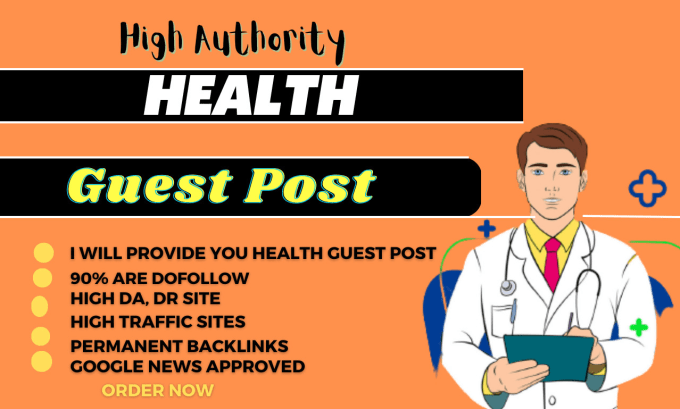Understanding Health Insurance
Health insurance is a contract between an individual and an insurance company, providing financial coverage for medical expenses in exchange for regular premium payments. It is designed to protect individuals from the high costs of medical care, including doctor visits, hospital stays, surgeries, medications, and preventive services.
Access to healthcare services is a fundamental right that should be available to everyone. However, without adequate health insurance coverage, individuals may face significant barriers when seeking medical care. This article will delve into the connection between health insurance and healthcare access, highlighting the importance of having appropriate coverage to meet medical needs.
Types of Health Insurance Plans
There are various types of health insurance plans available to cater to different individuals' needs. Some common types include:
a) Health Maintenance Organization (HMO)
HMO plans require individuals to choose a primary care physician (PCP) who manages their healthcare. Referrals from the PCP are typically necessary to see specialists. HMOs usually offer lower out-of-pocket costs but limit the choice of healthcare providers.
b) Preferred Provider Organization (PPO)
PPO plans provide more flexibility in choosing healthcare providers. They allow individuals to seek care from both in-network and out-of-network providers, although out-of-network services may have higher costs.
c) Exclusive Provider Organization (EPO)
EPO plans combine features of both HMOs and PPOs. They require individuals to use in-network providers but do not require referrals for specialists.
d) Point of Service (POS)
POS plans also involve a primary care physician, similar to HMOs. However, they offer more flexibility by allowing individuals to seek care out-of-network, although at a higher cost.
The Importance of Health Insurance
Having health insurance is crucial for several reasons:
Financial Protection: Health insurance helps individuals avoid exorbitant medical bills that can lead to financial hardship or bankruptcy.
Timely Access to Care: With health insurance, individuals can seek medical attention promptly, preventing minor issues from becoming major health concerns.
Preventive Services: Health insurance often covers preventive care, such as vaccinations and screenings, promoting early detection and reducing the risk of serious illnesses.
Specialist Care: Insurance coverage ensures access to specialized care from experts in various medical fields, providing comprehensive treatment options.
Health Insurance Benefits
Health insurance plans offer a range of benefits to policyholders. These benefits can include:
Hospitalization Coverage
Outpatient Services
Prescription Medications
Emergency Care
Maternity Care
Mental Health Services
Rehabilitation Services
Preventive Care
How to Choose the Right Health Insurance Plan
When selecting a health insurance plan, it's essential to consider the following factors:
Coverage: Evaluate the coverage provided by the plan, including doctors, hospitals, medications, and specific medical services.
Cost: Compare premiums, deductibles, copayments, and coinsurance to determine the affordability of the plan.
Network: Check if your preferred healthcare providers are included in the plan's network to ensure convenient access to care.
Additional Benefits: Look for extra benefits such as wellness programs, telemedicine services, or alternative therapies.
Flexibility: Assess the plan's restrictions and limitations, such as referral requirements or preauthorization for certain treatments.
Factors to Consider When Selecting a Health Insurance Policy
In addition to choosing the right plan, it's important to consider the following factors when selecting a health insurance policy:
Cost-sharing: Evaluate the percentage of expenses covered by the policyholder and the insurance company.
Deductibles: Consider the amount that must be paid out-of-pocket before the insurance coverage begins.
Premiums: Assess the monthly or annual payments required to maintain the health insurance policy.
Maximum Out-of-Pocket Limit: Determine the maximum amount an individual has to pay in a given year before the insurance covers all expenses.
Prescription Drug Coverage: Check if the policy includes coverage for prescription medications and any associated costs.
Exclusions and Limitations: Understand the treatments, conditions, or services that may not be covered by the policy.
Health Insurance for Families
Securing health insurance for family is essential to ensure comprehensive healthcare coverage. Family health insurance plans allow individuals to include their spouse and dependent children under a single policy, providing financial protection and peace of mind for the entire household.
Private Health Insurance
Private health insurance refers to coverage obtained directly from an insurance company or through an employer-sponsored plan. It offers individuals the flexibility to choose the coverage that best suits their needs, with options for customization and additional benefits.
Health Insurance Experts: The Role of Insurance Brokers
Health insurance experts, often known as insurance brokers, play a vital role in helping individuals navigate the complex world of health insurance. They provide guidance, compare different plans, and assist in finding the most suitable coverage based on an individual's specific requirements and budget.
Affordable Health Insurance Options
For individuals on a tight budget, there are affordable health insurance options available. These can include government-sponsored programs like Medicaid or the Children's Health Insurance Program (CHIP), which provide coverage for low-income individuals and families.
Employer-Sponsored Health Insurance
Many employers offer health insurance benefits to their employees as part of their compensation package. Employer-sponsored health insurance plans often provide comprehensive coverage options, including medical, dental, and vision care.
The Significance of Preventive Care Coverage
Health insurance plans increasingly emphasize preventive care coverage, recognizing its role in maintaining overall health and preventing chronic conditions. Preventive care services such as vaccinations, screenings, and wellness visits are typically covered without additional cost-sharing.
The Role of Health Insurance in Managing Chronic Conditions
Health insurance plays a crucial role in managing chronic conditions by providing access to necessary treatments, medications, and ongoing care. With the right health insurance coverage, individuals with chronic illnesses can receive the support they need to effectively manage their conditions and improve their quality of life.
Overcoming Barriers to Health Insurance Access
Despite the importance of health insurance, there are still barriers to access that individuals may face. These barriers can include affordability, lack of knowledge about available options, language barriers, and eligibility requirements. It is crucial to address these barriers and advocate for policies that promote universal access to healthcare services.
Health insurance is intrinsically linked to healthcare access. It provides individuals with the financial protection necessary to seek timely and comprehensive medical care. By understanding the different types of health insurance plans, the benefits they offer, and the considerations when choosing coverage, individuals can make informed decisions to ensure their health and well-being.








.jpg)

 English (US) ·
English (US) ·